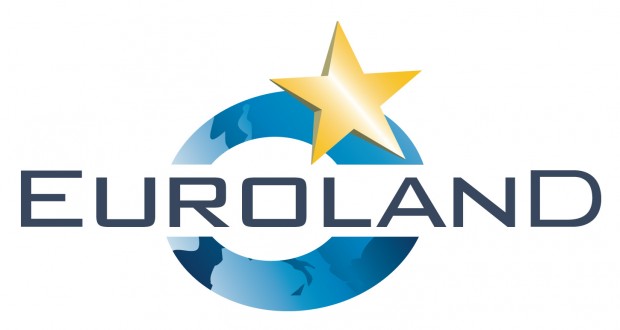Franck Biancheri, former director of studies and research at LEAP, used to say that “the national parties don’t understand anything about Europe”. His assessment was confirmed in a most impressive way on April 23rd during a TV broadcast on France-Inter radio channel, where Bruno Le Roux, the President of the Socialist Group in the French National Assembly, was invited. When asked about a survey that presented the National Front as possible winner in the European election in France, he answered using some empty phrases: this was only the reflection of some discontent; the politicians had the ability to change those facts for which the French were criticizing Europe; the entire fault belonged to the conservative majority and to a European Commission that was too liberal, preventing Europe from going toward growth; the leader of the list, the German Socialist Martin Schulz (who is barely known either in France or in Germany) was qualified in European issues; and so on and so forth … Everyone can see that Europe has never been in such bad shape.
However, our national politicians have practically no idea of how to get it out of the quagmire. The idea of the “social Europe” to be built starting “today” is something Jacques Delors already sold to us in 1986, in order to advertise the ratification of the European Unique Act, the great European legislative basis of the single market, which has changed the fate of the European Communities. Previously a regulated market, this European Treaty has transformed them into a unique market unhindered by any regulatory state role, but coordinated by the single principle of undistorted competition. Today, the Europeans’ lack of satisfaction is not the result of any particular policy of the EU or any particularly wrong direction it may have taken that could possibly be straightened out by setting a new course. Europe suffers nowadays from a general rejection because of what it represents: institutions which are far from the Europeans, politicians and technocrats cut off from reality, a neo-liberal system blocking any attempt of more national social policies, a general standardization policy which cuts the European root of the linguistic, cultural and social diversity, etc…
In order to fight against the rejection of the EU, it is not enough to change something in the system, we must change the system itself. Still, given the inability of our national politicians to grasp the source of discontent, we must abandon the idea that they are the ones who can bring change, all the more since they no longer have the power to change things in Europe. Thus, it’s up to the Europeans themselves to get organized, not just without, but most often against, their national political systems. And that’s where the shoe pinches. There is no such thing as a civil society that exists on the European level. Indeed, lobbying and interest groups exist and manage to act in specific areas, but on major general issues, there is absolutely nothing. Hence, the exorbitant power belongs to the technocrats in Brussels faced to no European democratically-legitimized political force whatsoever. They can deal things with the national bureaucrats.
Franck Biancheri, by creating Newropeans in 2005 for the 2009 European elections, knew that a democratic power-taking in Europe could only be done within the trans-European body open to a democratic vote, the European Parliament. Yet this beautiful initiative has not yielded the expected results. Newropeans was completely sidelined by the media, viscerally opposed to any new policy vector that is out of their imagination – and of their circles of friends and influence peddling. Thus, in a democracy that proceeds mainly through the media, Newropeans was not in a position to prove that trans-European parties (unique leader team, unique program) were possible – and above all NECESSARY. Indeed, they are necessary to organize a European democratic forum, consisting of Europeans, understanding Europe and staying away from the interests of the purely national political systems, who use the European level exclusively for their own purposes. But we ought to trust (if we do not want to lose hope in a future for Europe) that many MEPs, even if they are coming from national systems, are true Europeans. In addition, they should understand that considering the existential crisis in which Europe finds itself (which betrayed its historic role as a peace protagonist, and would rather play the “let`s go to war along with the Americans” game), it is their task to gather under the form of the “Estates General” of Euroland to eventually discuss the issues that matter today in Europe : What kind of Europe do we want? What for? How should we give it democratic legitimacy? Which power and competency sharing between the European institutions and nation-states should be adopted? In addition, this debate must give birth to the desire of creating a Euroland Constituent Assembly meant to edit a Euroland Constitution that gathers all member states of the Eurozone, sharing the will to change this “thing” of the “sui generis” public international law toward a genuine political entity. The Edstates General of France and Navarre which Louis XVI summoned to vote for new taxes but who, given the urgency of the historical situation, were able to rise above the role that was theirs in the old regime, acted this very way.
Of course, this would be a revolution, but extreme situations call for extreme actions. It is either a long suffering Europe or a future-oriented Europe. For once, this is really a TINA situation (” there is no alternative “). The MEPs, democratically elected in their member states, justifiably have the opportunity – and legitimacy – to make that move; of course, on condition that they ratify their constitution draft by a trans-European referendum. If our elected European officials do not find the necessary courage, the idea of an independent, democratic, peace and prosperity guarantor Europe is in great danger. Our destiny would then be to go under U.S. control, pushed toward a completely obsolete anti-Russian and anti-BRICS antagonism, opposite the Europeans’ interests. This is a huge task. This is a huge risk. But missing this chance would mean to miss history and betray the intentions of the founding fathers of the European project.


 LEAP2040 Toutes les informations et archives Europe2040
LEAP2040 Toutes les informations et archives Europe2040



